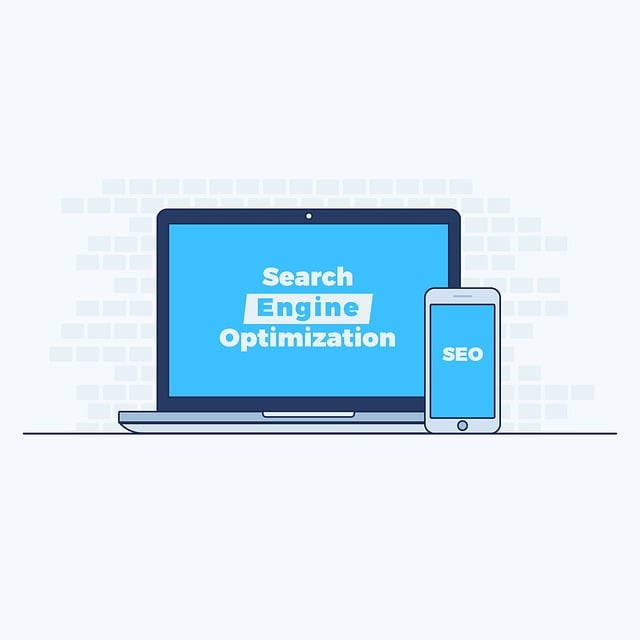Comprehensive SEO Audits serve as digital navigators, analyzing every aspect of a website from technical functionalities to content strategies. By identifying issues like broken links, slow loading times, duplicate content, and inadequate keyword optimization, stakeholders can strategically enhance SEO performance, improving both search engine rankings and user experience. Regular SEO audits are crucial for staying competitive, adapting to algorithm changes, and driving increased organic traffic and conversions. These audits delve into on-page (content quality, keyword optimization) and off-page optimization (link building, social media mentions), utilizing tools like Google Search Console and SEMrush to provide actionable insights for continuous improvement.
In today’s digital landscape, a robust online presence is non-negotiable. Understanding Comprehensive SEO Audits forms the bedrock of achieving and maintaining success in search engine optimization (SEO). This article delves into the essential practice of Comprehensive SEO Audits, exploring why they are crucial, their key components, and how to harness their power effectively. From on-page optimizations to technical considerations and link-building strategies, discover how these audits unlock your website’s full potential.
Understanding SEO Website Diagnostics: The Foundation of Online Success

Understanding SEO Website Diagnostics is akin to having a compass in a vast, uncharted landscape. It provides the foundation for navigating the complex world of online visibility and traffic. Comprehensive SEO Audits serve as powerful tools that scrutinize every aspect of your website, from technical functionalities to content strategy. By delving into these audits, business owners and digital marketers gain invaluable insights into areas that require improvement.
These diagnostics reveal the strengths and weaknesses of a site’s on-page elements, off-page strategies, and overall user experience. It highlights issues like broken links, slow loading times, duplicate content, or inadequate keyword optimization—all of which can hinder search engine rankings. Armed with this knowledge, stakeholders can make informed decisions to enhance SEO performance, ensuring the website resonates with both search engines and visitors alike.
Why Conduct Comprehensive SEO Audits? Unlocking Website Potential

Comprehensive SEO audits are essential tools for any website aiming to maximize its online visibility and performance. These in-depth assessments go beyond surface-level analysis, delving into every aspect of a site’s technical, on-page, and off-page optimization. By uncovering hidden issues and identifying areas for improvement, Comprehensive SEO Audits unlock the full potential of a website.
Such audits provide a holistic view of a site’s search engine ranking capabilities, revealing opportunities to enhance keyword targeting, optimize content for user intent, and build high-quality backlinks. Regularly conducting these audits allows website owners and marketers to stay ahead of algorithm updates, adapt to changing industry standards, and ultimately drive organic traffic and conversions more effectively.
Key Components of a Thorough SEO Audit

A comprehensive SEO audit is an essential process for any website aiming to achieve and maintain optimal online visibility. It involves a meticulous examination of various factors that influence search engine rankings. The key components of such an audit include analyzing on-page elements, such as content quality, keyword optimization, meta tags, and header structures. These on-page factors are the foundation of your site’s SEO strategy, ensuring search engines understand your page’s context and relevance.
Furthermore, a thorough audit delves into technical aspects like website loading speed, mobile responsiveness, schema markup implementation, and URL structure. These elements play a crucial role in enhancing user experience and are directly tied to search engine algorithms. Identifying and rectifying issues related to these components can significantly impact your site’s performance and increase its chances of ranking higher in search results.
Techniques for On-Page Optimization Assessment

Comprehensive SEO audits are an essential part of on-page optimization assessment, offering a deep-dive into a website’s performance and user experience. These audits involve meticulously analyzing various elements within the site’s code, content, structure, and design to identify areas for improvement that can boost search engine rankings. Techniques include examining meta tags, headers, and alt text for relevant keywords; evaluating page load speeds; assessing mobile responsiveness; and ensuring proper internal linking structures.
By leveraging tools like Google Search Console, SEMrush, or Ahrefs, professionals can uncover insights related to keyword rankings, backlink profiles, and user behavior patterns. This data-driven approach allows for making informed decisions about content updates, structural changes, and technical optimizations. Ultimately, these techniques aim to create a seamless user journey while aligning the site’s architecture with best practices recommended by search engines, thereby driving organic traffic growth.
Exploring Off-Page Factors: Link Building and Authority

Comprehensive SEO audits extend their analysis beyond a site’s on-page elements, delving into crucial off-page factors that significantly impact search rankings. Link building is a cornerstone of this process; it involves acquiring high-quality backlinks from reputable sources, indicating to search engines that your website offers valuable content worth sharing and referencing. The quality and quantity of these links directly influence your site’s authority, a key metric in determining its trustworthiness and relevance within its niche.
Beyond link building, comprehensive audits may uncover other off-page factors like social media mentions, brand citations, and online reviews. These elements collectively contribute to your website’s online reputation and visibility, further reinforcing its position in search engine results pages (SERPs). Understanding and optimizing these off-page components are essential steps in enhancing a site’s overall SEO performance.
Analyzing Technical SEO: Site Performance and User Experience

Comprehensive SEO audits are an essential tool for understanding and improving a website’s visibility on search engines. When analyzing Technical SEO, one of the critical aspects is site performance. This involves assessing page load times, server response speed, and overall website responsiveness across various devices and network conditions. Fast-loading websites not only enhance user experience but also signal to search engines that the site is optimized for efficiency.
User experience (UX) is another vital component. Comprehensive audits should evaluate factors like mobile-friendliness, site navigation ease, and the clarity of content presentation. A well-designed UX encourages users to explore deeper into a website, resulting in lower bounce rates and longer sessions—all positive signals that can positively impact search engine rankings.
Using Analytics to Measure SEO Campaign Effectiveness

In today’s digital landscape, understanding the effectiveness of your SEO campaign is crucial for long-term success. Comprehensive SEO audits, powered by advanced analytics tools, offer a detailed glimpse into user behavior and website performance. By tracking key metrics such as organic traffic, click-through rates (CTRs), bounce rates, and conversion numbers, marketers can identify areas of improvement and optimize their strategies accordingly. Analytics provide hard data on what’s working and what’s not, enabling data-driven decisions that enhance search engine rankings and user engagement.
Regularly conducting comprehensive SEO audits allows businesses to stay ahead of the curve. They can uncover hidden opportunities, pinpoint technical issues like site speed or mobile optimization problems, and measure the impact of content updates. This data-backed approach ensures that SEO efforts are aligned with business goals, leading to better visibility, higher traffic, and improved conversions.
Strategies for Implementing SEO Diagnostic Findings

After conducting a Comprehensive SEO Audit, it’s crucial to translate findings into actionable strategies. This involves prioritizing issues based on their impact and urgency, creating a roadmap for implementation. Start by addressing critical technical errors that hinder crawlability and indexing, ensuring your website is accessible to search engine bots. Next, optimize content by incorporating relevant keywords naturally, enhancing readability, and providing valuable information that aligns with user intent.
Additionally, focus on improving site speed as it directly affects user experience and search rankings. Implement recommended changes in metadata, headings, and image optimization to boost visibility. Regularly monitor analytics data post-implementation to track progress and adjust strategies accordingly. This iterative process ensures your website remains optimized for ever-evolving search engine algorithms.
